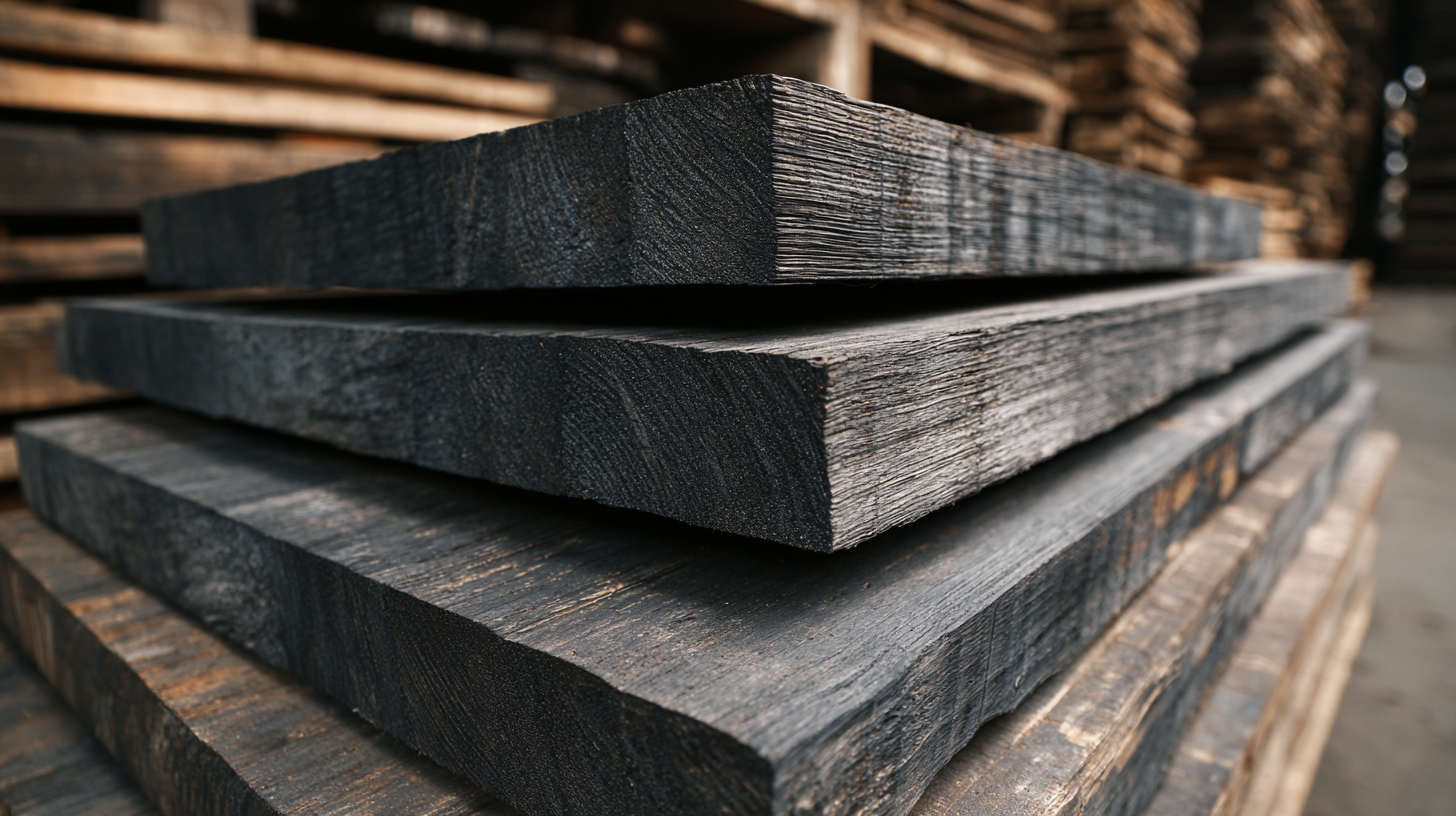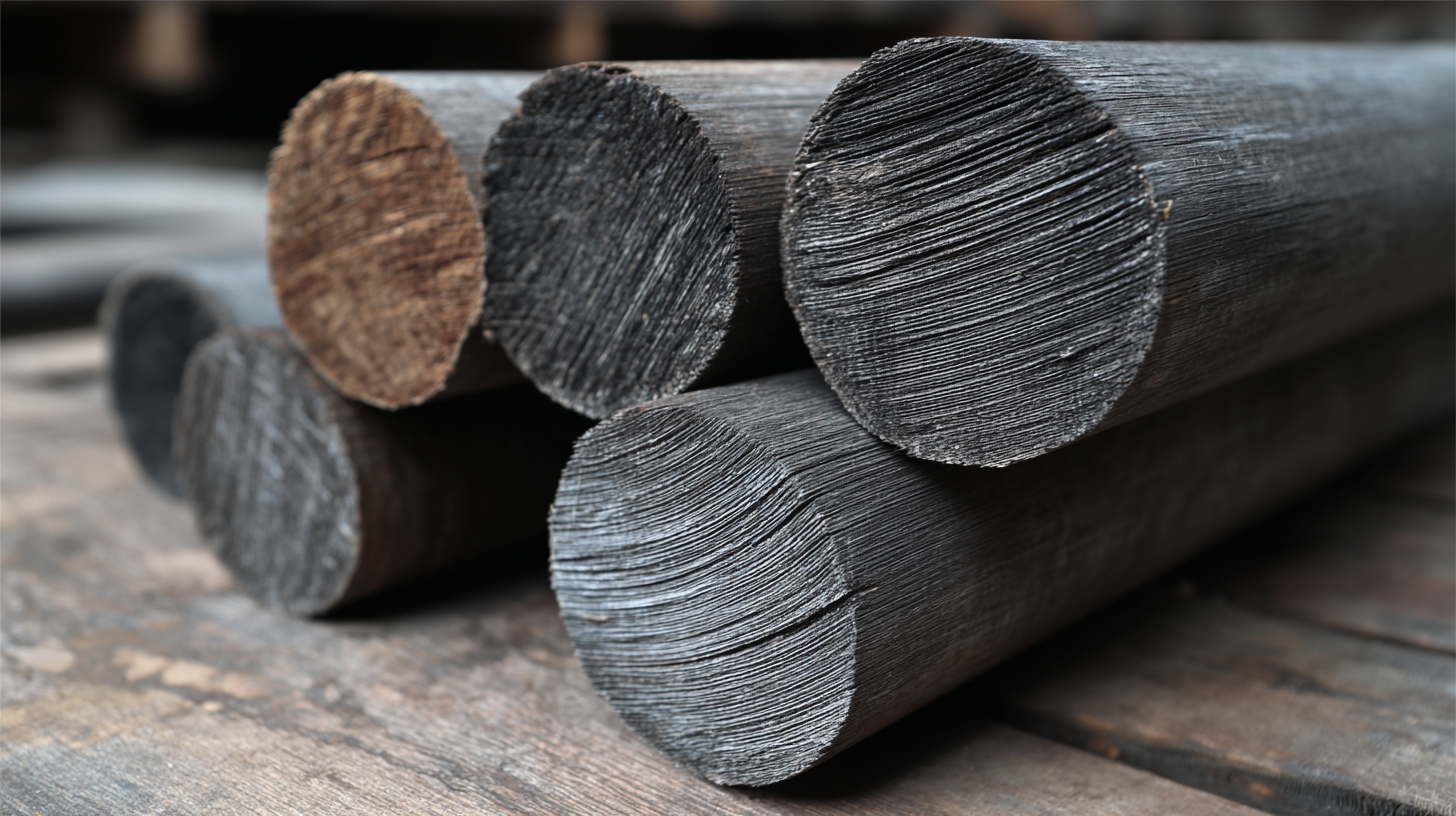Shandong Xiangying New Materials Technology Co., Ltd.
Shandong Xiangying New Materials Technology Co., Ltd.
In recent years, the demand for sustainable and eco-friendly materials in various industries has surged, with the market for bamboo products projected to reach $98 billion by 2026, according to a report by Grand View Research. Among these emerging materials, Bamboo Charcoal Veneer stands out due to its unique properties, such as natural deodorization, moisture regulation, and antibacterial qualities. These attributes make it an attractive option for applications ranging from interior design to consumer goods. As more businesses seek to align with green practices, finding quality suppliers of Bamboo Charcoal Veneer has become crucial. This guide will explore the best approaches to sourcing reliable suppliers in global markets, ensuring you not only access high-quality veneer but also contribute to the growing demand for sustainable materials.

In today's competitive global market, finding high-quality suppliers for bamboo charcoal veneer is crucial for businesses aiming to offer top-notch products. Bamboo charcoal veneer, known for its eco-friendly properties and aesthetic appeal, has garnered significant attention in industries ranging from furniture to interior design. To identify reputable suppliers, it’s vital to evaluate their manufacturing processes, materials used, and the sustainability of their practices. Visiting factories when possible and requesting samples can provide insight into the quality and reliability of the products offered.
Moreover, leveraging online platforms and trade shows can help connect with a diverse range of suppliers. Networking within industry circles and seeking recommendations can lead to discovering hidden gems that might not be on the radar of major players. Researching supplier certifications and customer reviews is essential to ensuring that quality standards are met. By prioritizing transparency and communication, businesses can forge collaborations with suppliers who not only meet their quality requirements but also share their commitment to sustainability and ethical practices.

The global demand for bamboo charcoal veneer is on the rise, driven by an increasing awareness of sustainable materials and eco-friendly building practices. As reported, the bamboo products market is projected to grow significantly, with an estimated value reaching USD 142.27 billion by 2035, reflecting a compound annual growth rate (CAGR) of 5.6%. This surge in demand for bamboo products, including bamboo charcoal veneer, signifies a shift in consumer preferences toward greener options in construction and interior design.
Key players in the bamboo import market, such as India and the Netherlands, are leading the way in importing this versatile material. The growing interest in sustainable building materials is creating vast opportunities for bamboo processing plants, which are crucial for meeting this rising demand.
With projections indicating a substantial growth in the veneer sheets market—expected to reach USD 38.7 billion by 2035—the bamboo charcoal veneer sector stands to benefit significantly from the expanding market trends, positioning itself as a vital player in the global push for sustainability.
When sourcing bamboo charcoal veneer, supplier reliability is paramount. A first essential factor to evaluate is the supplier's production capacity. This includes their ability to consistently meet demand while maintaining high-quality standards. A supplier with advanced production techniques and robust quality control measures can ensure that the veneer sourced will be uniform and durable, which is crucial for various applications.
Another key aspect to consider is the supplier’s experience in the bamboo charcoal industry. It is beneficial to partner with suppliers who have a proven track record and extensive knowledge of the market. Such suppliers are more likely to understand the nuances of sourcing quality materials and can provide valuable insights into trends and innovations. Additionally, checking for certifications and compliance with international standards can further enhance the trustworthiness of the supplier, ensuring that the bamboo charcoal veneer meets environmental and safety regulations.
When sourcing bamboo charcoal veneer, it’s essential to ensure that the suppliers adhere to stringent sustainability standards. Bamboo is a highly renewable resource, but the methods of cultivation and harvesting can significantly impact the environment. Look for suppliers who demonstrate transparency in their sourcing practices, including certifications from recognized eco-friendly organizations. This not only guarantees you are purchasing eco-friendly products but also supports a supply chain committed to sustainable practices.
Tip: Before finalizing your supplier, inquire about their bamboo sourcing methods. Verify if they engage in sustainable farming practices that promote biodiversity and soil health. Additionally, consider suppliers who utilize carbon-neutral processes in their production lines, ensuring that the entire lifecycle of the product is environmentally friendly.
Another crucial aspect is to assess the environmental impact of the carbonization process used in transforming bamboo into charcoal. Some manufacturers may employ techniques that are harmful to the ecosystem. Seek out those who utilize innovative, low-emission technologies. Engaging with suppliers who prioritize sustainability not only benefits the planet but also enhances your brand's reputation as a conscious entity within the global market.
Tip: Request detailed information about the supplier’s manufacturing processes and any relevant impact assessments they have completed. Such diligence will ensure that your business development aligns with global sustainability goals.

When sourcing bamboo charcoal veneers in global markets, verifying their quality is paramount. One of the most effective ways to ensure the integrity of these products is by examining relevant certifications. Certifications serve as a benchmark, assuring buyers that the veneers meet industry standards for performance, safety, and environmental impact. Look for certifications such as the ISO (International Organization for Standardization) and FSC (Forest Stewardship Council), which indicate adherence to stringent guidelines.
These certifications provide transparency in the production process and promote sustainable practices. For instance, FSC certification specifically highlights that the bamboo used is sourced from responsible plantations, ensuring that the harvesting methods do not harm the ecosystem. Moreover, manufacturers who prioritize certifications tend to implement rigorous quality control measures, resulting in a more reliable product for consumers. In an increasingly competitive global market, these certifications not only enhance credibility but also empower buyers to make informed decisions about their purchases.
